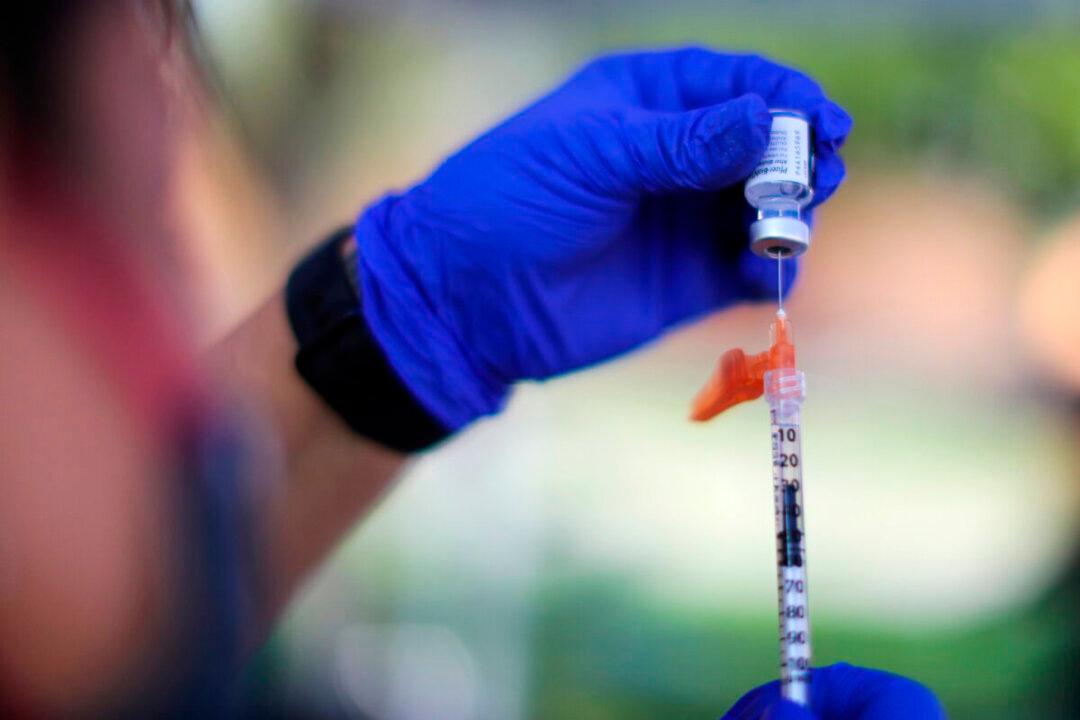The Food and Drug Administration (FDA) on Wednesday said that agency-authorized COVID-19 vaccines currently provide protection against death and severe disease and may not require additional boosters, coming after vaccine maker Pfizer submitted data saying that its vaccine’s efficacy is eroding over time.
In findings released online, the FDA analyzed data submitted by Pfizer as part of their request to authorize a booster shot, or a third dose, of the vaccine to individuals aged 16 and older in the United States. The agency did not make a definitive statement on whether to support booster shots at this time, adding that regulators have not reviewed the available data.





